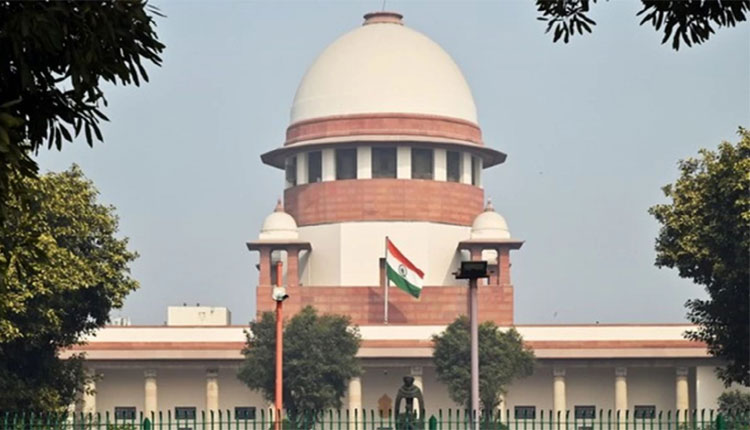New Delhi: The Supreme Court has raised serious concerns about the backlog of cheque bounce cases, urging lower courts to encourage settlements when both parties are willing. This statement came during a hearing where the Supreme Court overturned the conviction of P Kumarasamy in a cheque bounce case.
A bench of Justices Sudhanshu Dhulia and A Amanullah noted that after the case’s registration, both parties had reached a compromise, with Kumarasamy paying Rs 5.25 lakh to the complainant, A Subramaniam. The court’s order, dated July 11, emphasised the importance of prioritising the “compensatory aspect” over the “punitive aspect” in such cases.
The court’s directive highlighted the burden of pending cheque bounce cases on the judicial system, stressing that these cases should be treated as regulatory offences. The bench remarked, “Bounce of cheques is only a regulatory offence. It has been included in the category of crime only in view of public interest, so that the credibility of the relevant rules is maintained.”
In 2006, P Kumarasamy, also known as Ganesh, failed to repay a loan of Rs 5.25 lakh from respondent A Subramaniam. He subsequently issued a cheque for the amount under the name of his partner firm, M/s New Win Exports. The cheque bounced due to insufficient funds, leading Subramaniam to file a complaint.
The trial court convicted Kumarasamy and sentenced him and his firm to one year of imprisonment each. However, Kumarasamy challenged the conviction, and the appellate court overturned the trial court’s decision, acquitting him and his company. The high court later reinstated the lower court’s conviction, prompting Kumarasamy to appeal to the Supreme Court.
Taking into account the totality of the agreement and conditions between the parties, the Supreme Court set aside the high court’s order and restored the appellate court’s acquittal. The bench ordered the cancellation of the trial court’s conviction from October 16, 2012, and the order effective from April 1, 2019.
The Supreme Court’s decision underscores the need for judicial efficiency and the importance of resolving cheque bounce cases through compromise when feasible, to reduce the backlog and uphold the credibility of the legal system.



Comments are closed.